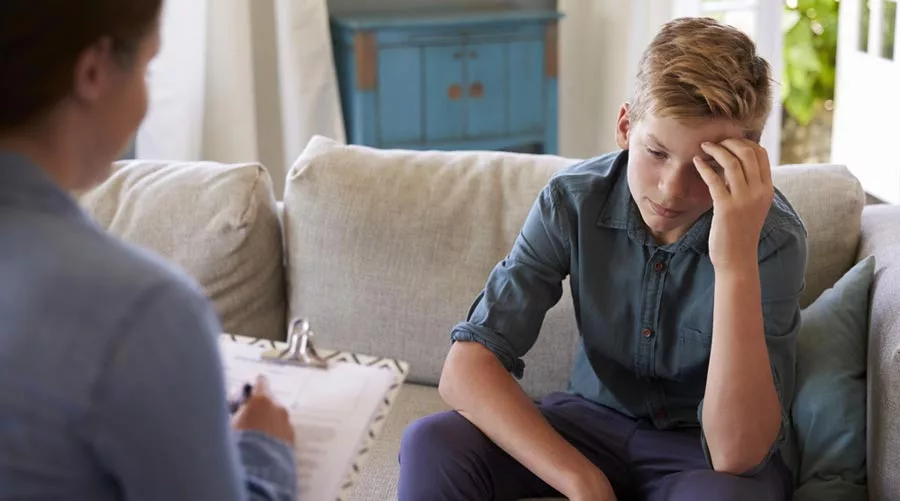Understanding Alcohol Use Disorders and the Effects on Children
Alcohol addiction impacts the entire family and not just the parents struggling with their substance use. Many parents will seek treatment because they want to protect their children from the damage of these situations. Do children of alcoholics suffer from PTSD and what can you do to shield your loved ones from the damage of substance use?
If you are an adult child of alcoholic parents, or a parent examining your relationship to alcohol, you have come the right resource!
Catalina Behavioral Health can help you to create healthy relationships in your life, whether you have younger children or an adult child. We offer family therapy as a core component of our programs, so that you can work through trauma with your kids and set them up for success in the future.
Keep reading to get answers on unresolved trauma from alcoholic parents and find effective, evidence-based methods for treating both alcohol abuse and PTSD!
Get Immediate Help For Problem Drinking – Call Now!
How Do Children of an Alcoholic Parent Struggle with Mental Health?
Children of all ages can be impacted by having an alcoholic parent in the home. A parent’s addiction sets the stage for a chaotic home life, which impacts children differently depending on their unique temperament and degree of resilience. Of course, the alcoholic parent’s behavior during their drinking and in its aftermath also plays a role.
Post-traumatic stress disorder or PTSD is commonly found in the adult children of an alcoholic parent. In other words, it is not just your life that is impacted by drinking alcohol.
Do Children of Alcoholics Suffer from PTSD? How Does it Occur?

Oftentimes, parents who drink are unpredictable and may place their children in frightening situations. If a child never learns what to expect from their parent and there is a dangerous event, they might start to develop PTSD. Alcoholic parents tend to create an unstable environment in the home that can lead to children feeling on edge.
This aids in the formation of complex PTSD and its related symptoms. In this type of post-traumatic stress disorder, it is not a single event that causes the difficulty. Instead, it is shaped by repeated exposure to traumatic memories and events. It isn’t just war veterans and sexual assault survivors who develop PTSD.
What are the Symptoms of PTSD in Young Children?
While adult children are often the ones to seek help for PTSD, it is important to keep in mind that even from a young age, alcohol can negatively affect children and parental alcoholism can lead to unresolved trauma.
Mental health looks a little different for young children, so be sure to note some of the symptoms.
Seek help early if you feel that your alcohol abuse is creating any of these symptoms in your child’s life:
- Assuming responsibility: A person’s typical parenting abilities may be negatively impacted by alcohol use. As a result, children may feel like they have to step up to compensate for things that are not getting done around the house. Assuming responsibility beyond what is age-appropriate could indicate early PTSD.
- Emotional withdrawal: An early sign that children develop PTSD is that they tend to withdraw and disengage from the people around them. They may keep to themselves, not displaying any overt emotions.
- Tantrums and behavior issues: Especially in young children of alcoholics, an early sign that a child’s mental health is deteriorating is an increase in tantrums. If your child is acting out for attention at home or at school, it might be time to seek help for them.
Keep in mind that PTSD is not the only thing that can develop in children of alcoholics. Research points to the fact that major depressive disorder and persistent depressive disorder are more common in this population. Anxiety is also more common.
Joint Commission Accredited Treatment Programs
What Trauma Symptoms Might Adult Children of Alcoholic Parents Have?
Children who have an alcoholic parent may start to present with some of the symptoms of post-traumatic stress disorder.
What symptoms are common among those who have childhood trauma related to alcoholic parents and substance abuse in the home?
Here are a few of the ways that adult children of alcoholics may find that they have difficulties later in life:
- Constant awareness of danger (hypervigilance): If they had to be aware of any dangerous event in the home related to alcohol use, they may carry this over into adulthood. They are constantly on edge, thinking about what could go wrong.
- Challenges expressing emotion: Oftentimes, children learn to monitor their emotions around their alcoholic parents. This often shuts them down emotionally and makes it difficult for them to form healthy relationships and to express dissatisfaction, unhappiness, and even some positive emotions.
- Control issues: Alcoholic parents often create a chaotic environment at home. Adult children may find it difficult to not be in control of the events that happen in their lives later on in life.
- Poor self-esteem: Adult children of alcoholics may have low self-esteem. They may seek praise and new accomplishments but have trouble accepting compliments. This also tends to lead toward increased sensitivity to criticism.
- Difficulties forming attachments: Some adult children of alcoholics will carry their relational difficulties over to the rest of their lives. If they never learned that a parent could be a stable influence in their life, they may have a hard time connecting with partners or friends later on. Borderline personality disorder can be common.
Of course, there is also a high likelihood that adult children of alcoholics will also fall into the same patterns they saw in their homes growing up. In other words, they are more likely not only to have PTSD, depression, and anxiety, but they may also fall into substance abuse or problems with drinking more readily.
Adverse Childhood Experiences and Forming Healthy Relationships

One of the core concerns for children of alcoholics is the number of adverse childhood experiences they may have as a result of alcohol use in the home. Adverse childhood experiences (ACEs) are events that impact a child’s sense of safety.
Sometimes, they can be from severe life events like firsthand experiences of abuse or neglect. At other times, it can be merely witnessing violence in the home. If there is substance use in the home and a parent is unreliable or unavailable, this can also serve as an ACE that impacts future interpersonal relationships.
Growing Evidence of the Impact on ACEs in Adulthood
The research on ACEs is clear: those who have a greater number of adverse childhood experiences are less likely to experience happiness in their relationships compared to those with lower numbers.
Alcohol abuse and alcoholism in the home can impact your child from an early age, but it has a profound effect even on an adult child. It may also lead them to choose a partner who uses substances since this is what is familiar to them. In other words, they have a difficult time creating a healthier life for themselves outside of trauma.
Get Help for Alcohol and Trauma Treatment at Catalina
Helping Trauma Victims Heal from Alcoholic Parents
The good news is that an alcoholic parent’s behavior does not have to define a child’s intellectual development if they receive help for it. The first thing you can do is make sure you are living your own healthier life, but seeking treatment for your child is also a must-do item.
They need therapy both on their own and with you to work through their trauma.
Addressing Trauma During Family Therapy at Catalina
Catalina Behavioral Health can help you start having difficult conversations with your children about your substance use disorders and any comorbid mental health conditions. All of our mental health providers are skilled at helping you to knit your family back together.
However, your child also needs therapy on their own to learn new coping skills and receive help to process the adverse childhood experiences they have already had. You should be involved in their therapy, but it should also allow them a safe space to process things on their own. The level of involvement will vary depending on the age of the child.
How to Address Trauma in Children of Alcoholics

There are lots of different treatments you might choose to pursue for adult children of alcoholics. Make sure you are getting help from a facility that specializes in substance use disorders and can assist you in making a treatment plan customized for your family.
Many adult children find that their parent’s alcohol and/or substance use will disrupt normal development. Here are a few ways that they can go back and seek help for what they lost.
Cognitive Behavioral Therapy for Trauma
This allows children to address the cognitive distortions and low self-esteem that typically impact children of alcoholic parents. They will examine their thoughts and feelings, noting how those two components influence their actions. In a safe space, they can start to come to terms with the distorted ways they view reality.
Dialectical Behavioral Therapy: DBT and Radical Acceptance
Dialectical behavioral therapy allows children to start being more mindful of their own emotions and gives them an effective set of coping skills to process those feelings. Mindfulness and meditation are two ways you might start to reshape your narrative. Even their parents can benefit from some of the skills learned in DBT.
This can be done in both group therapy settings and one-on-one.
We Accept Most Major Insurance Providers – Call Now!
Eye Movement Desensitization and Reprocessing
One of the greatest tools in helping people heal from trauma is Eye Movement Desensitization and Reprocessing (EMDR). This aids children of alcoholic parents to reflect on their trauma and reprocess those events, allowing them to see it more objectively with emotional regulation.
Family Therapy as an Ongoing Resource
A family therapist is an important piece of the puzzle when it comes to helping children form healthier relationships with alcoholic parents. This allows everyone a safe space with a neutral third party who can help facilitate the conversations necessary to move forward with healing. This is a core part of our rehab family services at Catalina.
Get Help for Yourself and Your Family at Catalina

If you have noticed that your child might be at risk of developing PTSD, the best thing you can do is seek help for yourself and them. Alcohol use should be brought under control to eliminate the risk of compounding the trauma and worsening symptoms. It will be hard for a young child to heal in a home where things are continuing to deteriorate.
Adult children of alcoholics may also need to consider seeking help for themselves. Whether you choose to do this through an intensive inpatient stay or on an outpatient basis, Catalina can help.
No matter why you are seeking treatment, Catalina Behavioral Health has the tools you need to stop coping in unusual or harmful ways. We can provide you with the emotional support you need to process PTSD and alcohol use. Reach out to our warm and welcoming team to learn more about our primary treatment program today!





